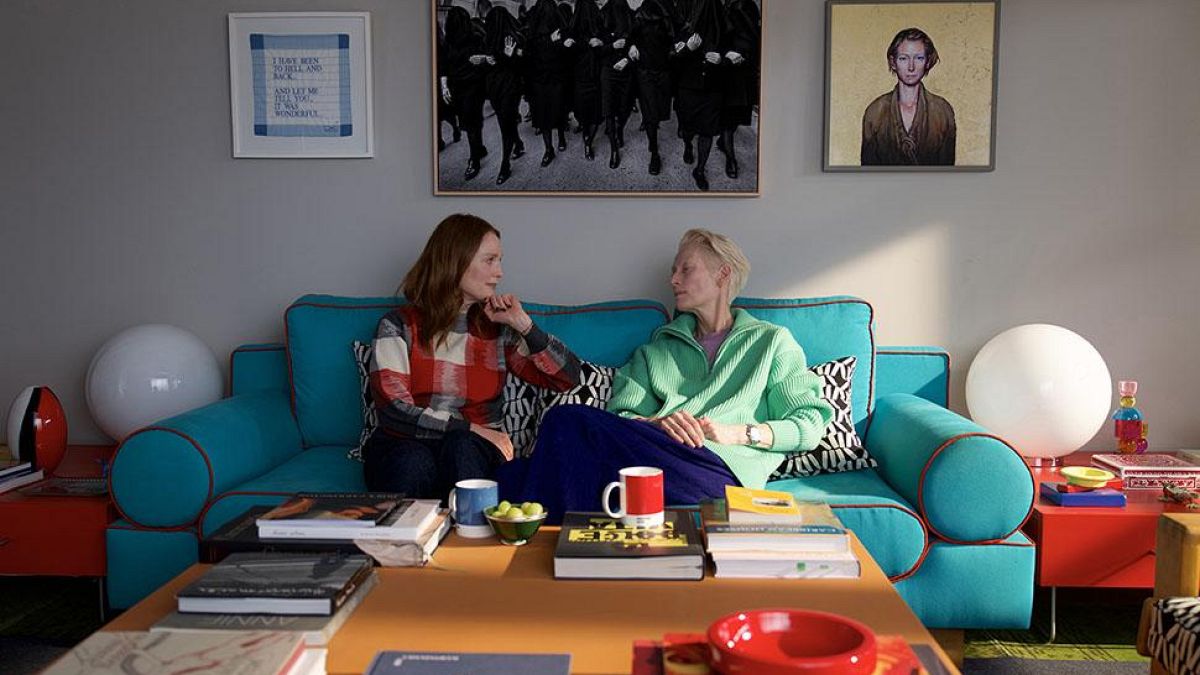The 81st edition of the Venice Film Festival has officially come to a close, and the prestigious Best Film Golden Lion award has been given to Pedro Almodóvar for his film “The Room Next Door”. This emotional drama, starring Julianne Moore and Tilda Swinton, follows the story of two friends rekindling their relationship, with one of them facing a terminal cancer diagnosis. The film explores the sensitive topic of euthanasia, a subject that Almodóvar is passionate about, advocating for greater access to dignified end-of-life options globally. The director dedicated the Golden Lion to his lead actresses and emphasized that the film is a celebration of the human experience.
Euthanasia remains a controversial and often taboo subject in many parts of the world, however, Almodóvar’s film sheds light on the importance of having the choice to end one’s life with dignity. The director’s call for global regulation and access to euthanasia mirrors the current legal landscape in Europe, where only a few countries, including Spain, have laws in place allowing for this practice. “The Room Next Door” marks Almodóvar’s first full-length project in English and is expected to be a strong contender for the upcoming Oscars, building on the success of his previous Venice Film Festival entry “Parallel Mothers”.
Other notable winners at the festival include Italian film “Vermiglio” winning the runner-up prize, and Dea Kulumbegashvili’s “April” receiving the Special Jury Prize. “April” delves into themes of womanhood and existence, exploring the complexities of morality and professionalism in the context of illegal abortions. Brady Corbet was awarded Best Director for his epic American saga “The Brutalist”, while Vincent Lindon won the Volpi Cup for his performance in the French drama “The Quiet Son”.
On the acting front, Nicole Kidman received the Best Actress award for her role in the BDSM drama “Babygirl”, highlighting the importance of communication in relationships. The festival showcased a diverse range of films touching on themes such as extremism, far-right ideologies, and family dynamics, reflecting the depth and breadth of storytelling in contemporary cinema.
In addition to the main competition awards, the Horizons section recognized emerging talent in cinema, with awards given for Best Director, Best Actor, and Best Actress, among others. The Venice Classics and Venice Immersive categories highlighted the importance of preserving film heritage and embracing new technologies in immersive storytelling.
Overall, the 81st Venice Film Festival was a celebration of cinematic excellence, diversity, and innovation, showcasing a range of compelling stories and performances that captivated audiences and critics alike. As the film industry continues to evolve and respond to societal changes, festivals like Venice play a crucial role in fostering creativity, celebrating artistic achievement, and sparking meaningful conversations about the world we live in. Stay tuned for more updates on the festival’s impact and the upcoming awards season as we reflect on the highlights and insights from this year’s event.











